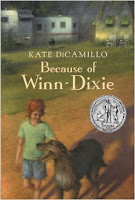I'm linking up with
The Broke and the Bookish for another Top Ten Tuesday.
What's this? I actually found time to do a Top Ten Tuesday again? Yes, believe it or not, I'm finally done
KMing our belongings, I've finished all the major projects leftover from that process, I'm no longer working two jobs, and we're back from vacation. It's like I have a life again! My reading has picked back up and now my blogging can too.
This week's topic — top ten hyped books I've never read — is similar to
a recent conversation at Modern Mrs. Darcy about books everyone but you has read. (Obviously, the "everyone" is an exaggeration, as indicated by the number of repeat titles in comments.) That conversation was focused more on so-called classic books, many of which I want to get around to reading eventually.
For this I want to mention some books that have been popular in recent years but which I haven't read and am not particularly anxious to read. Feel free to try to convince me otherwise :)
1. 11/22/63 by Stephen King
I've never read anything by King because as an HSP I stay far, far away from anything classified as horror, but I've heard this book is something different, more like fantastical historical fiction, and a lot of people I know have really liked it. However, I have a weird aversion to most time-traveling plots, and especially time-traveling plots that involve interfering with past events, so I don't see myself ever picking this one up.
2. 1Q84 by Haruki Murakami
I considered picking this up after it got rave reviews, but I was so scarred from reading
The Wind-Up Bird Chronicle that I couldn't bring myself to try it. I also read an interview with Murakami where he admitted that he included symbols and clues in his novels and didn't have any idea what they actually meant, which I can't stand — I hated
Wicked and
Son of a Witch because they were full of all sorts of mysterious threads that the author didn't even attempt to tie up.
3. Fifty Shades of Grey by E. L. James
Nothing about this book appealed to me anyway, and then I read
Jenny Trout's hilarious and depressing teardown of the whole series and it made me sad that these books not only exist but are so popular. From what I could gather from the copious excerpts, the writing is atrocious and the plot celebrates a frighteningly abusive relationship while stigmatizing and misrepresenting BDSM. So... no thank you.
4. A Game of Thrones by George R. R. Martin
I do hope to read this whole series eventually, but I'm not going to start until Martin is done writing it. Before I invest that much time in a book series I want to know that the entire series is worthwhile and it's not going to end on a stupid note like
The Dreamers, and the author's not going to die before finishing it, like with
The Wheel of Time. Once it's all done, someone tell me if it's still worth starting it.
5. The Girl with the Dragon Tattoo by Stieg Larsson
It's unusual for a book or series to be as popular as this one was without my picking it up, but I actually didn't know many people who read it, and those who did read (and knew me) said it would probably be too graphic for me. OK with me — I skipped it.
6. Inferno by Dan Brown
I loved
Angels & Demons.
The Da Vinci Code was OK.
The Lost Symbol was formulaic and the reveal made no sense. By the time
Inferno came around, I was no longer on the Robert Langdon fan train. Somehow this book was still a bestseller, but I never heard any reviews that made me want to pick it up.
7. Insurgent/Allegiant by Veronica Roth
I read
Divergent, and years ago I would not have started a series without the intention to read the whole thing, but I did not love the first book enough to continue with the series. The reviews I heard of the sequels didn't change my mind about reading them.
8. Lean In by Sheryl Sandberg
I do want to read this book eventually, if only to have more cultural fluency about the contents of a book that so many people have read and like to talk about. From what I know about it, I don't think my own approach to work or level of ambition matches Sandberg's, but I'm still interested to read what she has to say, particularly as I'm now a "working mother."
9. Twilight by Stephenie Meyer
I have considered reading this just because it is so mind-blowingly popular, but there's really nothing about it that sounds appealing to me. I'm not a big fan of fantasy, I can't stay poor writing or editing, and the take-home message, from what I hear, is questionable at best and dangerous at worst. So I've continued to take a pass on this series.
10. Wild by Cheryl Strayed
I may or may not eventually read this one. I know it's super super popular, but the handful of people I trust who have read it have said that they were way too annoyed with the author to get much out of the book. It sounds like a painful reading experience, honestly, so I'm not too keen to dive in.
What super-popular books have you never read? Do you plan to?
This post contains Amazon Affiliate links. Thanks for supporting A Cocoon of Books!

































